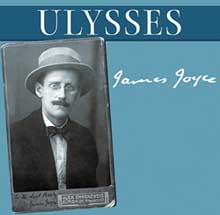
ULYSSES
James Joyce
(A Detailed Preview)
Ulysses, by James Joyce, is a challenge to understand. It is at once a masterpiece and an anomaly, a novel that stretches the form and content of the genre of which it is a part. At the same time that Ulysses uses Homer’s Odyssey as a major literary referent, the work heralds the end of the nineteenth-century novel as it was commonly understood. It takes readers into the inner realms of human consciousness using the interior monologue style that came to be called stream of consciousness. In addition to this psychological characteristic, it gives a realistic portrait of the life of ordinary people living in Dublin, Ireland, on June 16, 1904. First published in its entirety in France in 1922, the novel was the subject of a famous obscenity trial in 1933, but was found by a U.S. district court in New York to be a work of art. The furor over the novel made Joyce a celebrity. In the long run, the work placed him at the forefront of the modern period of the early 1900s when literary works, primarily in the first two decades, explored interior lives and subjective reality in a new idiom, attempting to probe the human psyche in order to understand the human condition.
Joyce supplied a schema for Ulysses that divides and labels the novel’s untitled episodes, linking each to the Odyssey and identifying other structural and thematic elements. The headings provided in this schema are used in the plot summary below, as is customary in literary analysis of this work. In the novel itself, there are three sections marked with roman numerals but no other explicit headings. The first line of each episode in the novel appears in small capital letters.
source: Novels for Students; vol.26; Ira Mark Milne; GALE Cengage Learning; 2008

نظر